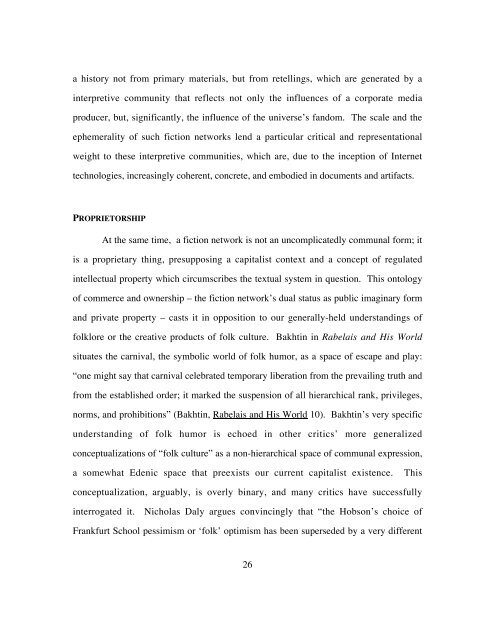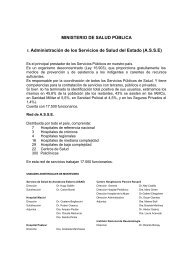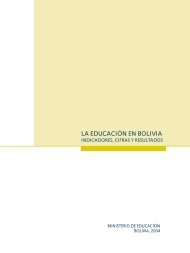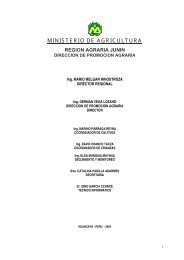- Page 1 and 2: Copyright by Jason Todd Craft 2004
- Page 3 and 4: Fiction Networks: The Emergence of
- Page 5 and 6: Acknowledgements Many thanks to my
- Page 7 and 8: - “comics universes” and persis
- Page 9 and 10: Grant Morrison and Animal Man .....
- Page 11 and 12: Chapter 1: Fiction Networks This wo
- Page 13 and 14: independent from its manifestation
- Page 15 and 16: espects the prosaics of the phenome
- Page 17 and 18: simple, self-contained and episodic
- Page 19 and 20: America (RIAA) and an American cult
- Page 21 and 22: as a media technology. Even as the
- Page 23 and 24: Beyond that analysis of popular ico
- Page 25 and 26: participation. From the broadest vi
- Page 27 and 28: of reproduction,” to use Andre Ma
- Page 29 and 30: art, and cinema. Comics can be seen
- Page 31 and 32: Everquest on a Midi-tower Windows m
- Page 33 and 34: experience through the interaction
- Page 35: hire, readers, reception communitie
- Page 39 and 40: inherent in clothing or, by McCrack
- Page 41 and 42: exactly concretized “objects” t
- Page 43 and 44: state of dialectic that does not re
- Page 45 and 46: We tend to think of this serial del
- Page 47 and 48: These “revived romances” and th
- Page 49 and 50: I argue in the fourth chapter of th
- Page 51 and 52: discrete works into a larger, ongoi
- Page 53 and 54: audience; the narrative of Superman
- Page 55 and 56: ecognizable fictional space, that r
- Page 57 and 58: for adolescence, social change, and
- Page 59 and 60: These fiction networks, I would arg
- Page 61 and 62: oaming across the desert floor will
- Page 63 and 64: The Matrix, on the other hand, clea
- Page 65 and 66: illustration of the characteristics
- Page 67 and 68: ideas of intellectual property. Eve
- Page 69 and 70: perspective, they cannot stand alon
- Page 71 and 72: complex, large-scale designed syste
- Page 73 and 74: Again, this argument may present a
- Page 75 and 76: Chapter 2: Genres, Fictional Worlds
- Page 77 and 78: salience or independence that can e
- Page 79 and 80: occur on multiple levels, and can g
- Page 81 and 82: Though Pavel deals with the mythica
- Page 83 and 84: network. The network is both a repr
- Page 85 and 86: While genre in the Bakhtinian frame
- Page 87 and 88:
performs a function of representati
- Page 89 and 90:
Topical Genres In reading a fiction
- Page 91 and 92:
the reader will not only understand
- Page 93 and 94:
you can do all your pop-culture hom
- Page 95 and 96:
incorporates others into its own pe
- Page 97 and 98:
attendant to the novel is extensive
- Page 99 and 100:
dynamic is actually a simulation wh
- Page 101 and 102:
inform a persistent world game’s
- Page 103 and 104:
The story recounts the wars between
- Page 105 and 106:
sonnet has fourteen lines, the poss
- Page 107 and 108:
(Motte). The Centre Pompidou experi
- Page 109 and 110:
methods, including close reading,
- Page 111 and 112:
Inc. DC Comics, originally known as
- Page 113 and 114:
Continuity manifests itself both wi
- Page 115 and 116:
juxtaposition became less a novelty
- Page 117 and 118:
COMICS REPRESENTING COMICS Why does
- Page 119 and 120:
such an example of mise en abyme or
- Page 121 and 122:
intertextual and metatextual argume
- Page 123 and 124:
the top of the Flash Comics issue s
- Page 125 and 126:
eader as somewhat fluid. It encoura
- Page 127 and 128:
Approach to a Literary Genre, Tzvet
- Page 129 and 130:
poor or mediocre artifacts. However
- Page 131 and 132:
cross-company “crossover” artif
- Page 133 and 134:
works represent the first “extens
- Page 135 and 136:
the process of their formation, the
- Page 137 and 138:
privileges the metanarrative as the
- Page 139 and 140:
Superman, Wonder Woman, Batman - ha
- Page 141 and 142:
whole, communicate a progression of
- Page 143 and 144:
dystopias and talking chimpanzees a
- Page 145 and 146:
From Crisis on Infinite Earths (Wol
- Page 147 and 148:
“dream girl” was his wife, who
- Page 149 and 150:
This nexus of productive categories
- Page 151 and 152:
figure in “The Coyote Gospel”:
- Page 153 and 154:
conventional realism with the evolv
- Page 155 and 156:
engages directly with the network i
- Page 157 and 158:
displayed in a bounded screen. In t
- Page 159 and 160:
inging forth difficult truths from
- Page 161 and 162:
the emergent and persistent system.
- Page 163 and 164:
From “Fox on the Run” (Morrison
- Page 165 and 166:
and then he - and the reader - is s
- Page 167 and 168:
ights of animals with the ethical r
- Page 169 and 170:
Superman’s iterations: created by
- Page 171 and 172:
act of kindness, and not only a mom
- Page 173 and 174:
evolution of those systems, and, in
- Page 175 and 176:
assignment of Marvel’s main narra
- Page 177 and 178:
Chapter 4: Persistent Worlds Immers
- Page 179 and 180:
universe that most people experienc
- Page 181 and 182:
oundaries on this activity; it is n
- Page 183 and 184:
accepted as such and that govern th
- Page 185 and 186:
Caillois’ answer to this question
- Page 187 and 188:
mechanically linear or “unicursal
- Page 189 and 190:
inherently contradictory notion. Th
- Page 191 and 192:
MUD subsumes these other structures
- Page 193 and 194:
of the mirror stage as well as curr
- Page 195 and 196:
It also challenges current ludologi
- Page 197 and 198:
contest seems inadequate to describ
- Page 199 and 200:
making manifested in a fiction. Lik
- Page 201 and 202:
experience of persistent world game
- Page 203 and 204:
Still, such social structures, howe
- Page 205 and 206:
itself: many mythologies of persist
- Page 207 and 208:
fictional space consisting currentl
- Page 209 and 210:
and creating a new one. That new av
- Page 211 and 212:
Fiction networks generate a diversi
- Page 213 and 214:
fiction networks, such as Star Wars
- Page 215 and 216:
membership in a subset of the commu
- Page 217 and 218:
company of both, was that The Sims
- Page 219 and 220:
Episode 1: The Phantom Menace as a
- Page 221 and 222:
fiction; the space of the persisten
- Page 223 and 224:
oth as a canon and as a fictional t
- Page 225 and 226:
one’s FSCS is not fully documente
- Page 227 and 228:
“Continuity” here not only spea
- Page 229 and 230:
fundamental divergences of the pers
- Page 231 and 232:
this writer frames the argument out
- Page 233 and 234:
These arguments, like any, rest on
- Page 235 and 236:
having an infinite number of advent
- Page 237 and 238:
they create and share in the value
- Page 239 and 240:
understandings of the literary. The
- Page 241 and 242:
And we should not be too quick to d
- Page 243 and 244:
network is often considered abject,
- Page 245 and 246:
emergent: traceable, in retrospect,
- Page 247 and 248:
IN CONCLUSION In this dissertation
- Page 249 and 250:
correspondence have not yet account
- Page 251 and 252:
---. "Forms of Time and of the Chro
- Page 253 and 254:
Darley, Andrew. Visual Digital Cult
- Page 255 and 256:
Kosak, Dave "Fargo". The Branded Wo
- Page 257 and 258:
Ness, Alexander. Grant Morrison Int
- Page 259 and 260:
Suler, John, and W. Phillips. The B
- Page 261:
Vita Jason Todd Craft, the son of J
















